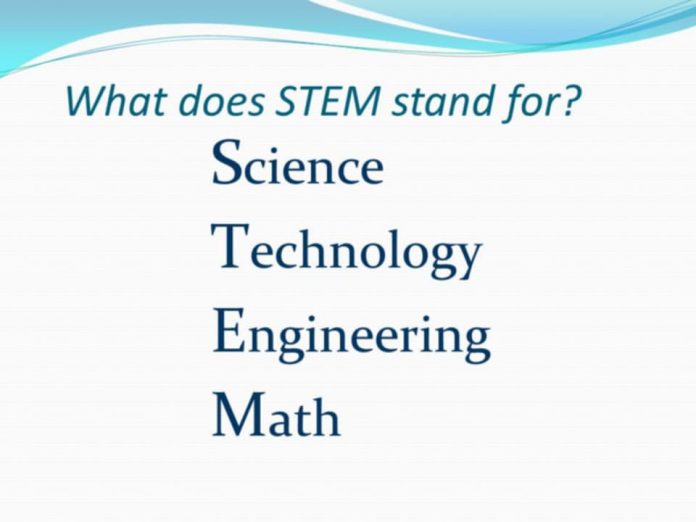What is STEM? What differentiates STEM from STEAM? Maybe you’ve heard of the terms previously, or maybe STEM is something you’ve never heard of. The acronym STEM is not new, but it has received a lot of attention recently as educators search for more meaningful and effective ways to educate students, connect with them, and prepare them for college and future careers. In this post we will break down the word and find out what does stem stand for and more.
What is STEM?
STEM stands for Science, Technology, Engineering, and Mathematics in its most basic form. STEAM, on the other hand, is an acronym for science, technology, engineering, arts, and math. But combining these subject names does not constitute STEM education.
It’s an educational philosophy that supports imparting knowledge and skills in a manner that mirrors real-world situations. Additionally, STEM-related professions are among those with the strongest global growth rates. Read below to know more regarding what does stem stand for.
Why is STEM Education Important?
Integration is the most important aspect of STEM and STEAM. Lessons are well-rounded, project- and inquiry-based, and encourage interdisciplinary learning rather than teaching subjects in separate subject silos.
The ways in which we work and solve problems in our daily lives are aligned with STEM and STEAM. It is a superb method for teaching and for establishing an effective learning environment. Keep reading to know more about what does stem stand for.
With STEM subjects, teachers are delivering knowledge in a way that is relevant to both the workplace and everyday life. An occupation like math rarely calls for just one set of skills. Think about an architect; they work with science, math, engineering, and technology.
In order for the architect to create complex buildings, the subjects are not used independently but rather are effortlessly and practically linked together. This demonstrates the value of STEM skill development for all kids, not just those who are interested in STEM jobs.
STEM and STEAM are just new approaches to comprehend and apply an integrated learning approach that simulates real life. Science and math can be taught jointly in a way that demonstrates how the knowledge from those two disciplines supports and complements one another, as opposed to being taught as separate subjects. We have shared more info below related to what does stem stand for.
What are STEM fields?
We’ll break it down below the specific details of each STEM field, which should help you answer the question, what does stem stand for.
Science
The natural sciences, sometimes referred to as science in the context of STEM, are fields that study natural occurrences. This would encompass courses in physics, biology, environmental science, and chemistry. Social sciences like psychology and economics are not considered sciences in the STEM sense.
Technology
Most likely, you’re using a computer, tablet, or phone to read this blog. Without technology students extending the boundaries of what is possible through innovation, this would not be conceivable.
STEM incorporates fields like computer science, web development, medical technology, and many more under the heading of technology. In order to handle potential dangers, students obtain a bachelor’s degree in cybersecurity because technology also raises a variety of security issues. This is important while learning what does stem stand for.
Engineering
The experimental work that goes into developing technology is known as engineering. What does that actually mean? For instance, the mechanism inside the automobile you drove to work was presumably designed by a mechanical engineer. Engineers are in charge of analyzing, testing, and improving designs for everyday technologies.
Mathematics
Work in science, technology, and engineering starts with math. “Applied mathematics” and “pure mathematics” can be distinguished from one another. The development of new mathematical ideas at the level of numbers and equations is the emphasis of pure mathematics. Math subjects like algebra, calculus, and geometry would fall under this category.
In contrast, mathematics designed for real-world applications is referred to as applied mathematics. For instance, mathematical disciplines like statistics, data science, and theoretical physics focus on finding solutions to particular, practical issues.
It’s critical to keep in mind that STEM disciplines frequently overlap in any given discipline. Numerous curricula incorporate, in varying degrees, elements from each subject. But when they come together, they define STEM!. You can read on to understand what does stem stand for in more detail.
What Are Some Problems With STEM Education?
As we are checking out what does stem stand for, let’s also find out what are the problems with this education system. The lack of resources is one of the main issues that individuals express when discussing STEM education or attempting to establish a STEM program. Teachers struggle with getting funding for the latest tech, training in how to use it, and knowing how to use it properly as a learning tool.
STEM kits can be a fantastic and simple method to get started with STEM if you are teaching at home or have a solid budget. A system that prioritizes grades and assessments rather than a curriculum that promotes innovation, creativity, critical thinking, and problem-solving abilities is another area where many teachers struggle. These accomplishments are difficult to categorize and evaluate. Making STEM lesson plans might be difficult when initially starting out. Continue reading to know more about what does stem stand for.
For more blogs: Fixnewstips
What Type of Jobs can STEM Education Lead To?
Your child may have a meaningful and successful career in fields as broad as engineering, sciences, and technology if you encourage them to pursue STEM topics.
Here is a list of the several types of careers that STEM could lead to.
Science
- Earth Science
- Ecology
- Environmental Studies
- Geology
- Medicine
- Physics
- Astronomy
- Anatomy
- Biology
- Chemistry
Technology
- HVAC Specialist
- Information Technology
- Marine Architecture
- Metal Fabrication
- Plumbing
- Power Plant Operations
- Video Game Design
- 3D Printing
- Automotive Technicians
- Computer Science
- Computer Technician
- Construction Technology
- Drafting
- Electrician
Technology
- 3D Printing
- Automotive Technicians
- Computer Science
- Computer Technician
- Plumbing
- Power Plant Operations
- Video Game Design
- Construction Technology
- Drafting
- Electrician
- HVAC Specialist
- Information Technology
- Marine Architecture
- Metal Fabrication
Engineering
- Aerospace Engineering
- Electrical Engineering
- Environmental Engineering
- Industrial Engineering
- Manufacturing Engineering
- Materials Engineering
- Mechanical Engineering
- Robotics
- Biochemical Engineering
- Biomedical Engineering
- Chemical Engineering
- Civil Engineering
- Computer Engineering
Maths
- Applied Mathematics
- Biomathematics
- Computer Mathematics
- Cryptography
- Finance
- Maths Education
- Mathematical Modeling
- Risk Management Specialists
- Statistics





